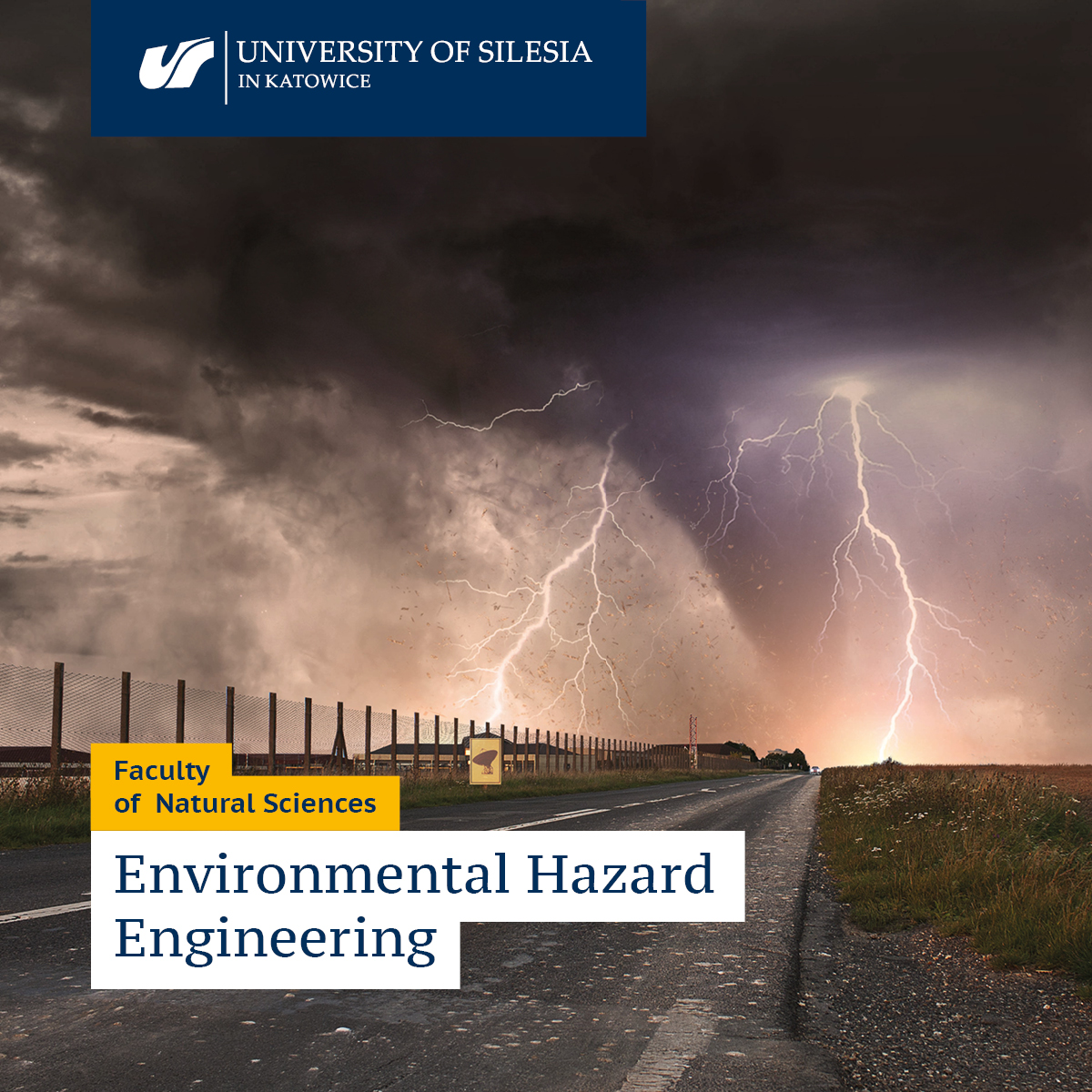Studies in Environmental Hazard Engineering are determined by a modern programme, in which a crucial direction is set out by the latest technology achievements in earth sciences. The studies are heavily practical – over half of them consist of practicals, lab classes and field classes. Students are taught in operating and designing systems of counteracting geohazards, acquire knowledge on hazards in natural sciences, and also learn about the issues of extreme meteorological, geomorphological, hydrological and seismic phenomena. Further advantages of the programme are that part of its classes is carried out by specialists, and the admission process is carried out in Polish and English. The curriculum is complemented with internship in companies and traineeships for graduates, possibilities of trips abroad within various programmes of international exchange (e.g. CEEPUS, Erasmus+).
Students may choose one of six majors:
- Spatial Planning in Regions at Risk,
- GIS in Geohazard Analysis and Crisis Management,
- Systems for Monitoring, Modelling and Forecasting Geohazards,
- Geochemical Methods of Assessment and Reconstruction of Geohazards,
- Technical Methods of Geohazard Prevention,
- Geohazards Effect on Biosphere, Society, and Economy.
Career prospects: Graduates in Environmental Hazard Engineering may find jobs in companies and state institutions dealing with spatial planning, environmental protection, crisis management, as well as hydro-technical and geological companies. They are also ready to work as geoinformaticians and specialists performing geotechnical and soil expertise. Additionally, they may be employed at land renewal and remediation projects, as well as at developing environmental studies, e.g. environmental impact assessment.






